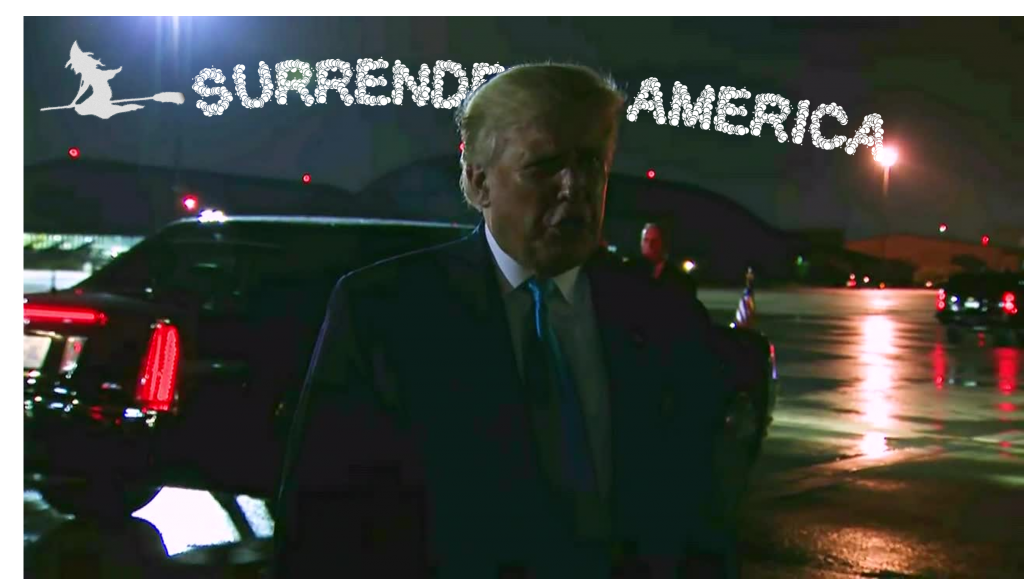
It was a dark and steamy night at Andrews Air Force Base, where the tarmac lights backlit an ominous tableau for Donald Trump, who glistened in the darkness like an eel. He denounced an American publication that reported he had referred to Americans injured and killed in combat as “losers” and “suckers.” “It is a disgraceful situation by a magazine that’s a terrible magazine,” he bellowed. “I don’t read it.”
On a sunny spring day in 1857, Ralph Waldo Emerson, Henry Wadsworth Longfellow, James Russell Lowell, Oliver Wendell Holmes and others gathered at the Parker House Hotel in Boston. Their purpose: to offer the young United States of America a national publication that could give voice to what many refer to as the American Idea. The bonds that held the northern and southern states together were being stretched to the breaking point and the Literary Founding Fathers searched for a way to articulate the national voice. They decided to create a magazine, The Atlantic Monthly, the publication derided by Donald Trump as “a terrible magazine.”
Mark Twain, whose early writing appeared in The Atlantic, reportedly said, “History does not repeat itself, but it rhymes.” It did so on September 3, 2020 on the tarmac at Andrews when the most divisive president in American history denounced a publication born out of political division. The Atlantic was founded by men who deplored slavery and feared that the great compromise of the Constitution would prove to be an irreconcilable difference. Their fear was well-founded; the nation convulsed with the Civil War less than a decade later.
Sixteen decades and three years after The Atlantic was born, an American president, rather than working to bind the nation’s wounds, seeks to reopen them. He embraces right-wing fringe groups like QAnon, the Proud Boys, and the Boogalo Boys, while denouncing diversity training as “un-American.” He conflates peaceful Black Lives Matter protesters with the rioters and looters who are always drawn to large street protests, hoping to fracture the nation along racial lines because he believes that is the key to his re-election. There is no “we” in Donald Trump’s socio-political lexicon: only “us” and “them.” In Trump’s mind, politics is black and white. Literally.
“I will be an ally of the light, not the darkness,” said Democratic presidential candidate Joe Biden on August 20th. Two weeks later, Donald Trump showed us what the darkness looks like. His face was cloaked in shadow, backlit by distant beacons and the glaring red tail lights of “The Beast,” the presidential limousine waiting for its oleaginous passenger. Trying to look presidential, he was a creature of the night. Although he had just returned from a political rally in Pennsylvania, there was nothing joyous about the setting. All the scene lacked was excerpts from James Bernard’s score for “The Horror of Dracula.” The President rode The Beast slowly back to the White House. In a movie, he would have returned to a crypt.
Trump’s defense to an allegation that he said hurtful things is to say hurtful things. He is who he is. His dark words come back to haunt him like a “surrender Dorothy” contrail painted onto the political sky, especially when validated by other news sources. All his words, his insults, his lies, his madness, have gathered into a cloud he cannot rise above. Trump lives in perpetual darkness, not just on the Andrews tarmac but everywhere he goes.
“So when it is reported—first in The Atlantic, then by The Washington Post, the AP, CNN, and Fox News—that multiple sources have heard Trump sneer and jibe at America’s fallen,” writes David Frum in The Atlantic, “the reporting rings true because it is consistent with the public record. The denials ring false because they defy that public record.”
The Atlantic also has a well-established record, as recounted by Cullen Murphy in 1994: “The Atlantic Monthly is where war-reporting in the American press was made into an art, with dispatches from Civil War battlefields by Nathaniel Hawthorne. It is where, in the 1870s, Anna Leonowens published the remarkable chronicle of her life as tutor to the son of the King of Siam. It is where John Muir published “The American Forest,” which led to passage of the Yosemite National Park Bill, and where Jacob Riis published his first searching portrayals of the American slum. It is where Vannevar Bush and I. I. Rabi and Albert Einstein wrote prophetically about atomic technology in the postwar era; where George F. Kennan serialized his memoirs, and, more recently, his diaries; where Frances FitzGerald probed the agony of Vietnam in an important series of articles beginning in 1966; where Tracy Kidder unraveled the electronic mind of a computer in his Pulitzer Prize-winning The Soul of a New Machine.”
It is also the magazine that plunged Donald Trump into the darkness of his deceit and laid bare what an empty husk of a man he is.
“The things reported fit in the mouth you know,” writes Frum. “Everybody knows it’s true, and most especially those who have been tasked to deny it.”
In the autumn of 2020, we are not called upon to deny what Donald Trump has said. We are, however, called upon to remove him from office because of what he said. The task of good journalism, like that found in The Atlantic, is to cast light on the President. Our task is to cast him into the darkness, the unlit repose of history’s worst mistakes, to simmer in the infamy he gleefully wished upon others.
© 2020 by Mike Tully
<<< YOU CAN READ / DOWNLOAD A PDF VERSION BY CLICKING HERE >>>

Be First to Comment